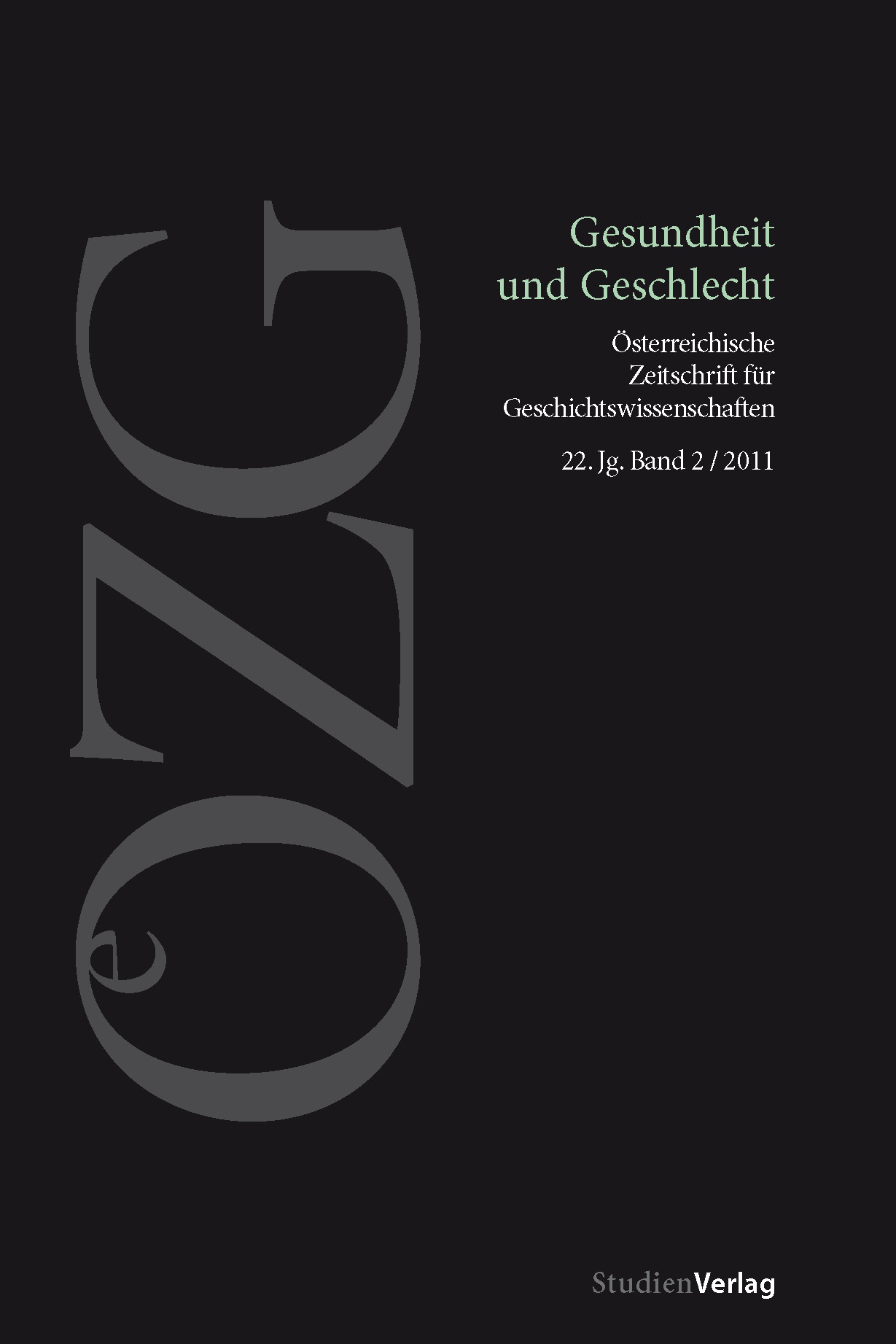Pregnancy, birth and paediatrics on the early medieval British Islands
DOI:
https://doi.org/10.25365/oezg-2011-22-2-8Keywords:
illness, disease, childbed, infancy, medical-magic treatmentAbstract
Traditionally, the topics of early medieval gynaecology and paediatrics can hardly be found without at least a subtle notion of misogyny. This may largely be due to the clerical background of most of these sources investigated so far. So it does not surprise that even those vitae, in which the respective saints have never (literarily) lived through their stages of childhood, children are presented as wild and uncontrollable. Parents seemed to have been confronted with the burden of constantly bridling their brats. This does not sound very caring and still several sources of early medieval Britain draw a fairly different picture of fathers and mothers (as well as the wider circle of relatives) who did invest a lot of time and emotionally graspable nursing care. Deformity and anatomic lacks were not necessarily met with abortion, infanticide or marginalisation. Rather were lengthy periods of care and healing taken into account, especially in the case of chronically ill or handicapped children. This must have meant a notable strain for those caring in addition to their already arduous everyday life. Unfolding these sources does not just bring to light several common practices of coping with pregnancy, illness and disease, but may also throuw new light upon a more scientific understanding of the value of infancy in early medieval societies.


